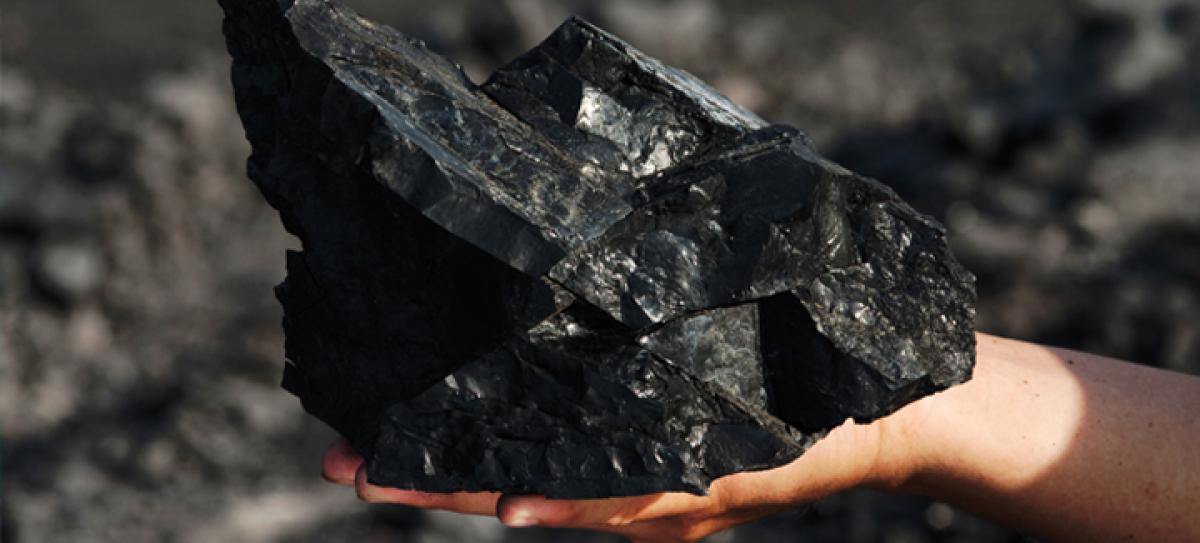Live
- National Energy Conservation Day: Fostering a sustainable future
- RG Kar issue: Day-long protests in Kolkata today on bail to Ghosh, Mondal
- Plans afoot to bring EPFO service at par with banking: LabourSecy
- vivo unveils X200 series of mobiles
- Sensex, Nifty stage a surprise recovery
- Govt commits to tackling maternal healthcare, deaths
- Capex to touch Rs 11.11-trn target this fiscal
- HCLTech launches TechBee
- Industrial growth recovery expected in H2
- No arrests made yet, says Police Commissioner
Just In

x
Highlights
Coal is the major contributor to the global climate crisis than any other energy source. In 2014, it was responsible for 14.2 gigatonnes of CO2 emissions. That is 44 percent of all energy-related carbon dioxide emissions, and more than one-quarter of all greenhouse gas emissions. Additionally, the extraction and burning of coal causes irreversible damages to the environment and to people’s health.
Coal is the major contributor to the global climate crisis than any other energy source. In 2014, it was responsible for 14.2 gigatonnes of CO2 emissions. That is 44 percent of all energy-related carbon dioxide emissions, and more than one-quarter of all greenhouse gas emissions. Additionally, the extraction and burning of coal causes irreversible damages to the environment and to people’s health.

This fact was unveiled in Brussels by the Heinrich Böll Foundation (the Green political foundation, Germany) and Friends of the Earth International in their first English edition of the Coal Atlas 2015, published today. The Coal Atlas contains the latest facts and figures on the use of coal and its environmental and social consequences. With more than 60 detailed infographics, the atlas illustrates the coal industry’s impact on nature, health, labour, human rights and politics.
"In India, power production and the amount of coal consumed to produce it nearly quadrupled between 1990 and 2013. The percentage of the population living below the poverty line fell by about one-third, while the proportion of the population with access to electricity rose from half to more than three-quarters. Thus, coal has alleviated India’s energy access problem and contributed to poverty reduction – but this has come at substantial health, social and environmental costs. And yet each Indian consumes only the equivalent of only 0.47 tonnes of oil a year, less than a third of the world average," the Atlas disclosed.
In the European Union, coal-related health problems cost up to 43 billion euro per year. Other effects of the coal industry include forced removals and repression of local residents.
“The Coal Atlas 2015 proves that there is no such thing as clean coal,” says Jagoda Munic, chair of Friends of the Earth International. She adds: “Europe is still one of the leading coal consumers. Even in 2015, Europe still suffers from devastated landscapes because of huge coal mining projects, especially in Germany, and from toxic emissions in coal-dependent countries such as Poland. The resistance to a coal phase-out in Europe indicates a European Union in the grip of a powerful industrial coal lobby. But the Atlas makes it clear that Europe needs to shift away from its undemocratic, irresponsible and unjust energy system into one that is socially-controlled, climate-safe, and fair.”
Barbara Unmüßig and Ralf Fücks, presidents of the Heinrich-Böll-Stiftung, urge the EU to take action: “Europe has both a historic and current emissions debt, and therefore has a specific responsibility to accelerate the transition from its current energy-mix into an emissions-free one. The last few years have shown in Germany and other European countries that a dramatic increase in the share of renewables would not only be perfectly compatible with the requirements of highly industrialized economies, but would also generate important and significant effects on innovation and jobs. This is why the EU needs to enhance its policy instruments for a transition into the emissions-free era – one essential strategy is to reshape the energy union for much more ambitious goals, including a reasonable price for CO2 emissions.” This would imply also a firm approach to subsidies into the coal industry: EU member states and the EU itself have been reluctant to take action against coal projects and continue to subsidize coal related business with almost 10 billion euros per year.
“That’s the other inevitable decision: The EU and its member countries have to stop supporting coal projects with taxpayers money”, Unmüßig and Fücks point out. “Not only in Germany, where the mining companies have benefited from subsidies to the tune of 327 billion euros in real terms since 1970. Also worldwide, the EU is subsidizing its coal industries investments, generating countless environmental and social conflicts. One thing's for certain: The European Union must give a very clear signal to phase out fossil fuels, and first and foremost coal, if it wants to lead the global transition into an emission-free world and have its specific weight in advocating for any possible climate agreement at the COP21 in Paris.”
However, other global players are starting to look for alternative energy sources. While India’s coal usage is still rapidly growing, the country expands its renewable energy as well. In 2014, China’s coal consumption went down for the first time in over three decades, while the Chinese government is pushing for a rapid expansion of renewable energy. In the United States, coal companies are heading towards bankruptcy due to a market shift towards renewables and other sources. On the other hand, India and Russia continue to rely on coal consumption in order to maintain economic growth. This is possible only thanks to subsidies: without them, electricity from coal would cost as much as twice the current price.
Jose Kalathil
More On

Next Story
More Stories
ADVERTISEMENT
© 2024 Hyderabad Media House Limited/The Hans India. All rights reserved. Powered by hocalwire.com







